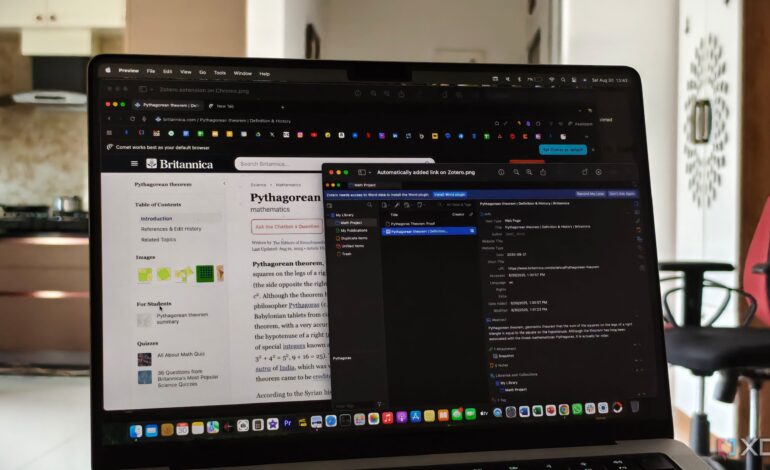How Zotero Transforms Research Efficiency for Writers and Students

In an era where information is abundant but often disorganized, the research management tool Zotero has emerged as a game changer for writers, students, and researchers. Designed to streamline the process of gathering and organizing sources, Zotero allows users to compile references from various formats, including PDFs and web pages, into a single, easy-to-navigate library.
Many individuals tasked with extensive research face the challenge of managing their findings. Having worked in the tech journalism field for over seven years, I have experienced the evolution of my writing process. Initially focused on brief news articles, I transitioned to more in-depth features that require substantial research and technical understanding. This shift highlighted a persistent issue: the difficulty of organizing diverse sources effectively.
For anyone in a similar position, be it a student or a professional, the frustration of losing track of valuable information is all too familiar. The time spent searching for previously accessed research can hinder productivity, especially when deadlines loom. Seeking a solution, I turned to Zotero, which was recommended by a friend. After installing the application on my Mac, I quickly realized its potential to transform my research workflow.
Getting Started with Zotero
The installation process for Zotero is straightforward, compatible with both Windows and Mac systems. Additionally, it is accessible on iOS and Android devices, allowing users to retrieve information on tablets as well. While the mobile app may not be as functional as the desktop version, its syncing capabilities enable users to access saved resources across devices.
To maximize the efficiency of Zotero, it is advisable to install the Zotero Connector Chrome extension. This extension simplifies the process of capturing online sources. Users can create an account on Zotero and link it to the extension, ensuring that all saved materials are synchronized. Organizing research becomes manageable through the creation of folders for different projects within Zotero, allowing for easy categorization of documents, articles, and other relevant media.
Streamlined Research and Citation Management
While manually adding sources can be time-consuming, the Zotero Connector streamlines this process significantly. By clicking on the extension while viewing a webpage, e-book, or PDF, users can save the content directly to their Zotero library. The app automatically populates essential metadata, including the source link, author names, and abstracts, saving valuable time and reducing the risk of errors.
This automation extends to citation management, where Zotero integrates seamlessly with Microsoft Word and Google Docs. With plugins available for both platforms, citations can be generated with minimal effort. Without Zotero, the tedious task of manually creating citations and references can consume substantial time, particularly for lengthy documents.
The greatest advantage of using Zotero is the ease of locating information at any given moment. Gone are the days of searching through countless bookmarks or notes to find a specific reference. With everything stored in one location, users can focus on their writing and analysis rather than the logistics of information retrieval.
Zotero also offers collaborative tools that are particularly beneficial for group projects. In academic settings, this feature allows multiple users to contribute and access shared research, enhancing teamwork and efficiency during assignments.
As the demands of research intensify, adopting efficient tools like Zotero not only enhances productivity but also improves the overall quality of work. For anyone still relying on outdated methods of note-taking and source management, transitioning to Zotero can significantly elevate research capabilities and streamline workflow.






